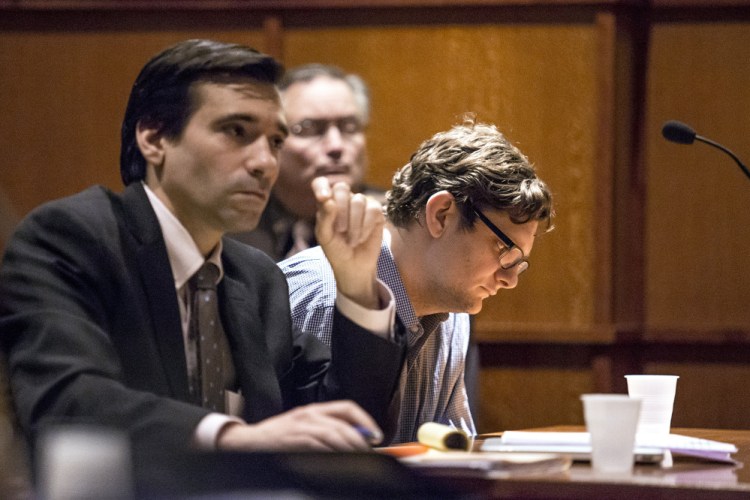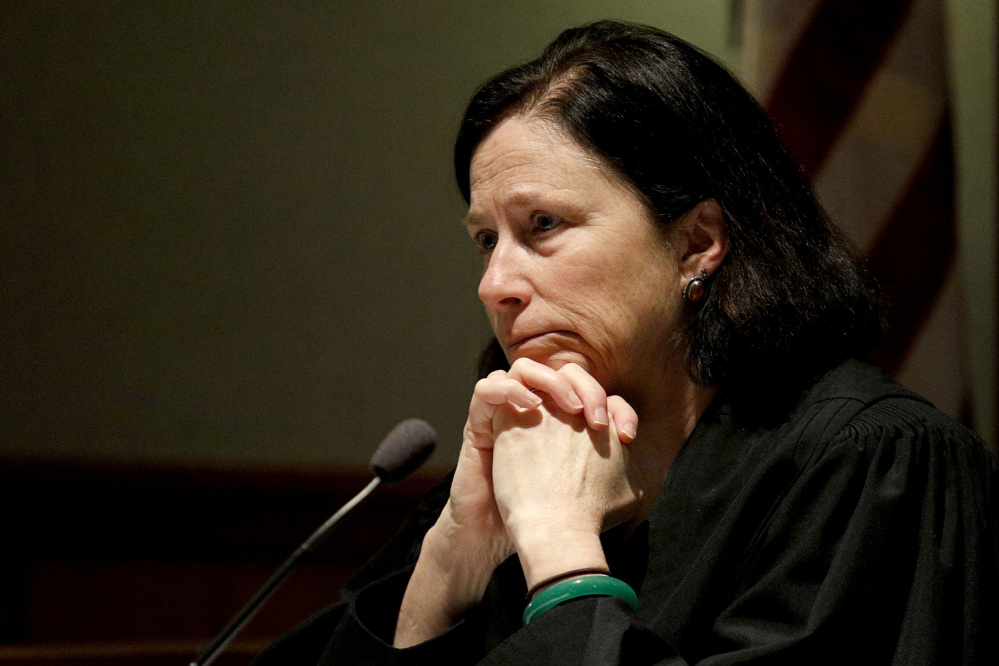A judge denied bail Tuesday for Noah Gaston, who has been charged with murder in his wife’s shooting death.
Justice Michaela Murphy said that releasing Gaston, 33, would pose a risk to the public, based on his “very reckless use of a firearm on the morning in question.” Gaston told police that he thought his wife was an intruder when he shot her inside their home at 37 Brookhaven Drive in Windham.
Gaston’s wife, 34-year-old Alicia Gaston, was walking up the stairs early on Jan. 14 when Gaston fired a single shot into her torso from a 12-gauge shotgun. The couple’s three children – ages 9, 8 and 2 – were in their bedrooms at the time, shortly after 6 a.m.
“This conduct was highly reckless at best,” Murphy said.
She ordered Gaston to have no contact with his late wife’s family and no contact with his children, who are being cared for by his in-laws. Murphy left open the possibility of amending her order regarding contact with his children while Gaston is held at the Cumberland County Jail in Portland, to align her order with any directive by the Maine Department of Health and Human Services.
EVIDENCE DOUBTS, FLIGHT CONCERNS
It is unusual for defendants in murder cases to be granted bail, but the judge decided last week to allow lawyers to argue for and against Gaston’s release at Tuesday’s hearing. In the same written ruling, the judge found no evidence to support a police claim that Gaston’s 8-year-old daughter heard her parents argue before the shooting.
As part of Murphy’s ruling last week, she found probable cause to bring the charge of intentional or knowing murder. That finding means the case met a legal hurdle to extinguish Gaston’s right to bail, but the judge scheduled the bail hearing without making the decision in her written order.
Gaston’s attorney, Luke Rioux, argued for his release on $50,000 bail with conditions that Gaston live with his mother in Kingfield.
“The evidence for murder is very thin,” Rioux said.
He said outside the court afterward that the shooting was a “terrible accident,” not intentional. But Rioux said the judge’s denial of bail was not a surprise.
“It certainly wasn’t unexpected. We always knew that bail was a long shot,” he said.
Assistant Attorney General Deborah Cashman asked that Gaston be denied bail or be given a high bail amount if the judge decided bail was appropriate.
Cashman argued that before the shooting, Gaston had told friends that he wanted to move off the grid, relocate to another state or live on a commune. She argued that those desires made bail necessary to ensure that Gaston appears in court to face the murder charge.
After the hearing, Cashman told reporters outside the courtroom that Tuesday’s bail hearing was unusual. Probable cause hearings and bail hearings are not typically separate events.
“Often this happens all in one sitting, so it looked a little different this time,” she said.
DIFFERENCES OVER GIRL’S ACCOUNT
Police do not believe that Gaston shot his wife by accident, in part because of what the 8-year-old told detectives in an interview after the shooting, according to court records.
Murphy listened to a recording of that interview during a hearing two weeks ago and came to a different conclusion about what the Gastons’ daughter told police. Before making her ruling, the judge also went to the shooting scene, heard testimony from Maine State Police detectives Christopher Farley and Ethel Ross, and reviewed police photos from the shooting.
“Contrary to what is suggested in the affidavit of (Detective) Ross, and contrary to what the state argued at the conclusion of the evidence, the court cannot reasonably infer from the recording that (the child) heard any argument between her parents before the shotgun went off,” Murphy wrote in her eight-page order.
She ruled there was probable cause to bring the murder charge against Noah Gaston, while noting that the legal standard for finding probable cause is “a relatively low one.”
Prosecutors have yet to present their case against Gaston to a grand jury seeking an indictment. Gaston is not required to enter a plea until he is formally indicted.
The charge of intentional or knowing murder is punishable by a minimum of 25 years in prison and a maximum of life in prison.
Send questions/comments to the editors.





Comments are no longer available on this story